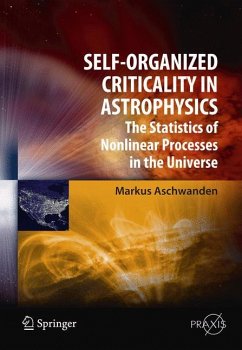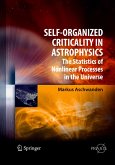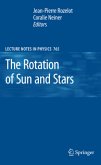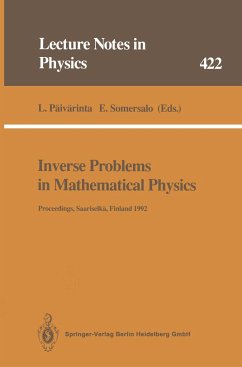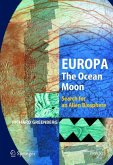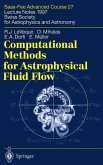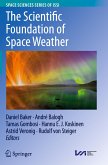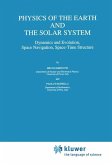This book addresses for the first time the subject of "Self-organized criticality" (SOC) in astrophysical systems. The book illustrates the relevance of SOC to such sciences as astrophysics, geophysics, biophysics and ecophysics.
Markus Aschwanden introduces the concept of self-organized criticality (SOC) and shows that due to its universality and ubiquity it is a law of nature for which he derives the theoretical framework and specific physical models in this book. He begins by providing an overview of the many diverse phenomena in nature which may be attributed to SOC behaviour.
The author then introduces the classic lattice-based SOC models that may be explored using numerical computer simulations. These simulations require an in-depth knowledge of a wide range of mathematical techniques which the author introduces and describes in subsequent chapters. These include the statistics of random processes, time series analysis, time scale distributions, and waiting time distributions. Such mathematical techniques are needed to model and understand the power-law-like occurrence frequency distributions of SOC phenomena. Finally, the author discusses fractal geometry and scaling laws beforelooking at a range of physical SOC models which may be applicable in various aspects of astrophysics. Problems, solutions and a glossary will enhance the pedagogical usefulness of the book.
SOC has been receiving growing attention in the astrophysical and solar physics community. This book will be welcomed by students and researchers studying complex critical phenomena.
Markus Aschwanden introduces the concept of self-organized criticality (SOC) and shows that due to its universality and ubiquity it is a law of nature for which he derives the theoretical framework and specific physical models in this book. He begins by providing an overview of the many diverse phenomena in nature which may be attributed to SOC behaviour.
The author then introduces the classic lattice-based SOC models that may be explored using numerical computer simulations. These simulations require an in-depth knowledge of a wide range of mathematical techniques which the author introduces and describes in subsequent chapters. These include the statistics of random processes, time series analysis, time scale distributions, and waiting time distributions. Such mathematical techniques are needed to model and understand the power-law-like occurrence frequency distributions of SOC phenomena. Finally, the author discusses fractal geometry and scaling laws beforelooking at a range of physical SOC models which may be applicable in various aspects of astrophysics. Problems, solutions and a glossary will enhance the pedagogical usefulness of the book.
SOC has been receiving growing attention in the astrophysical and solar physics community. This book will be welcomed by students and researchers studying complex critical phenomena.
From the reviews:
"The main aim of the present book is the derivation of the theoretical framework and specific physical models of SOC. ... The present work contains an extensive list of well-chosen references for further reading. The textbook is intended to be an introduction to the relatively new subject of self-organized criticality (SOC), which is suitable for students and post-docs, as well as for researchers." (Claudia-Veronika Meister, Zentralblatt MATH, Vol. 1211, 2011)
"The main aim of the present book is the derivation of the theoretical framework and specific physical models of SOC. ... The present work contains an extensive list of well-chosen references for further reading. The textbook is intended to be an introduction to the relatively new subject of self-organized criticality (SOC), which is suitable for students and post-docs, as well as for researchers." (Claudia-Veronika Meister, Zentralblatt MATH, Vol. 1211, 2011)

